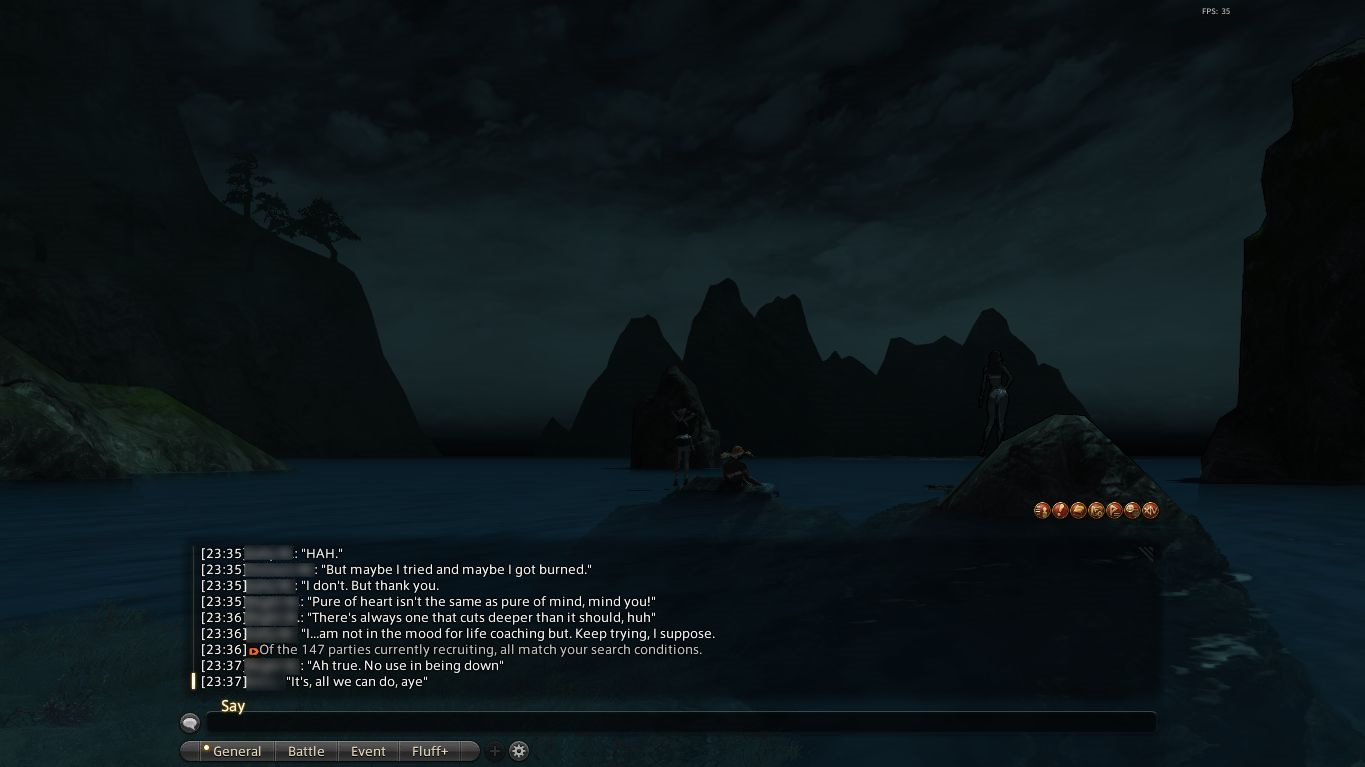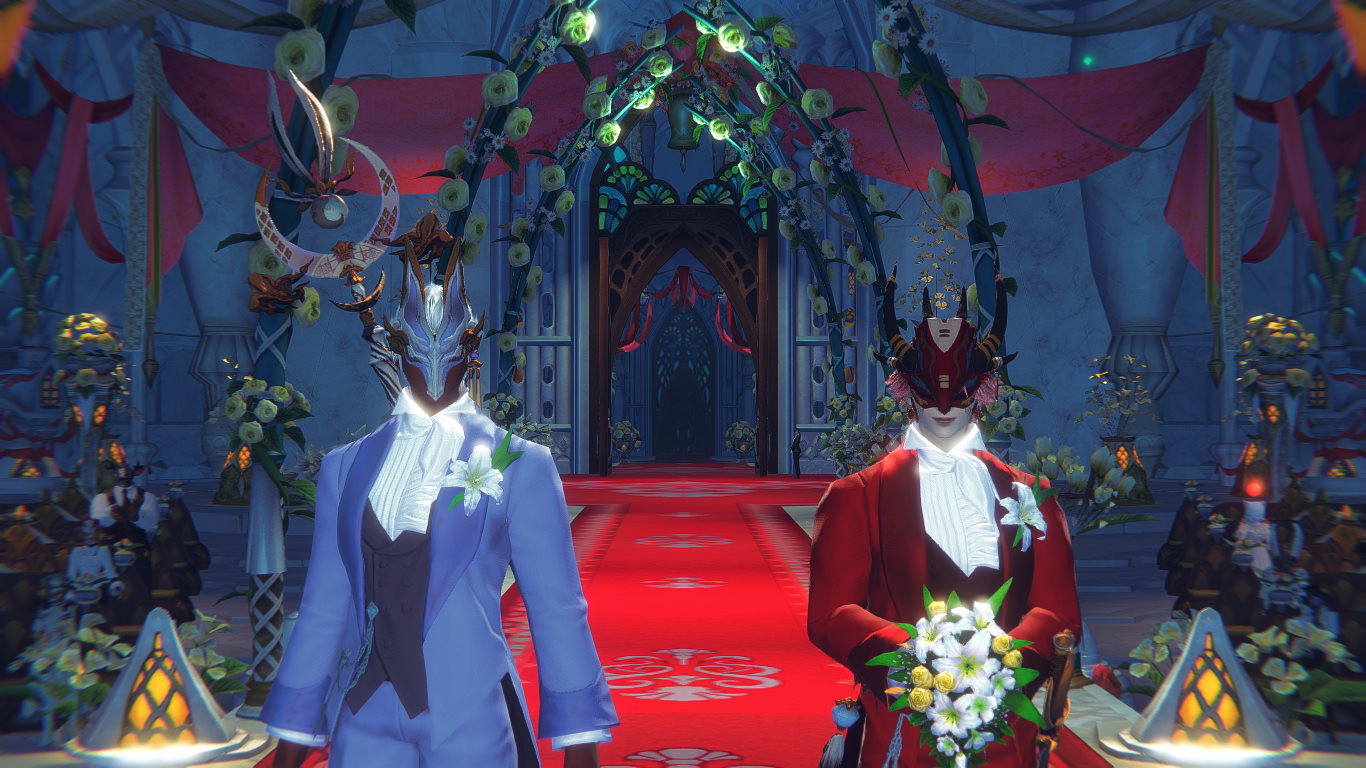MMORPGs can provide "lifestyles" within their environments, activities that players choose to engage in with their time in these worlds. Many are built with a tendency towards a game developers vision, being the mechanical aspects of a traditional game such as combat and conquest. However in my mind, the liveliness of MMORPGs are present in the organic interactions between players, as people living in a world. One such interaction is of course, "roleplaying".

In the context of MMORPG discussion, the act of "roleplaying" refers typically to roleplaying
between player characters rather than between the player and the world's stories, not unlike
traditional tabletop roleplaying games, utilising the game world and character creation systems as
a backdrop.
"...no matter how many quests and dungeons these games offer, they all seem to have a sizeable community of roleplayers nonchalantly inhabiting their characters and doing their own thing" - Perry, A.
From full character arcs, to weddings, to quiet nights at a queer bar, roleplaying allows an
extension of the personal expression in character creation, moreso than the predefined world and
stories of MMORPGs. Players form their own stories and scenarios entirely of their own will, feeding
back into the whole immersive experience.

While these interactions will never be a replacement for the physical world, the life and
experiences roleplaying has afforded me has allowed me to experience countless things, and make
numerous friends with kindred spirits under the anonymity of the avatar. The culmination of these
aspects in MMORPG's is thus what sparked my passion for the concept, and an appreciation of the
anthropological possibilities of such technology.
And so it is when corporations such as Meta (formerly Facebook) advertise shiny corporate
distillations of virtual worlds, drained of the colour and agency of so many services- such as
MMORPGs, that have come before, and are brought into the mainstream zeitgeist as idealisations of
the future, I feel an urge to shake someone and show them the possibilities long present, and the
numerous marginalised communities and people that have long pioneered the virtual world.
SEE SITE SOURCES >>